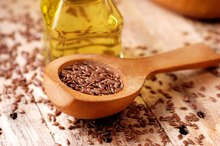Allergic Reaction to Dish Soap & Mouth Swelling
Contact dermatitis is characterized by inflammation of the skin due to external skin contact with an irritating substance such as dish soap 1. Contact dermatitis is divided into two types: irritant contact dermatitis and allergic contact dermatitis 12. If you experience mouth swelling, in addition to other allergy symptoms, when exposed to dish soap, you are likely experiencing allergic contact dermatitis 12.
Physiology
Allergic contact dermatitis, which occurs in two phases, develops as a result of a hypersensitivity reaction elicited through your immune system 1. The first phase of allergic contact dermatitis is called the sensitization phase 12. During this phase, the allergen in dish soap penetrates the skin and attaches to specific immune cells, called Langerhan’s cells, which carry the allergen to the lymph nodes. At this point, another type of immune cell, called T-lymphocytes, produce cells that develop a memory for the allergen. The sensitization phase occurs only once and generally does not produce any physical symptoms.
The next phase is called the elicitation phase. Next time you are exposed to the chemical in the dish soap, T-lymphocytes begin to multiply and the inflammatory process begins. The inflammatory process pulls T-lymphocytes to the skin surface. The elicitation phase is when a visible allergic reaction occurs.
- Allergic contact dermatitis, which occurs in two phases, develops as a result of a hypersensitivity reaction elicited through your immune system 1.
- During this phase, the allergen in dish soap penetrates the skin and attaches to specific immune cells, called Langerhan’s cells, which carry the allergen to the lymph nodes.
Normal Symptoms
Puffy and Itchy Face from Allergies
Learn More
The presence of the T-lymphocytes at the skin surface results in itching, redness, swelling and the development of small blisters. As the allergic reaction progresses, you may develop hives and the skin can become thick and scaly.
Mouth Swelling
Severe allergic contact dermatitis can cause swelling of the mouth and throat, a condition called angioedema 1. During the inflammation process, your body releases chemicals called histamines, which causes your blood vessels to swell. If the blood vessels swell too much, it can interfere with breathing, possibly leading to death. If you experience swelling in the mouth after exposure to dish soap, seek emergency medical attention.
- Severe allergic contact dermatitis can cause swelling of the mouth and throat, a condition called angioedema 1.
- If the blood vessels swell too much, it can interfere with breathing, possibly leading to death.
Considerations
Can Flax Oil Cause Rash?
Learn More
Allergic contact dermatitis is usually related to one specific chemical or a group of chemicals with similar characteristics 1. With dish soap, it is often added fragrances that trigger an allergic response.
To reduce the risk of allergic contact dermatitis when using dish soap, choose fragrance-free soaps 1. Soaps listed as hypoallergenic and unscented may still contain small amounts of fragrance. It is also helpful to wear rubber gloves when using dish soap.
- Allergic contact dermatitis is usually related to one specific chemical or a group of chemicals with similar characteristics 1.
- To reduce the risk of allergic contact dermatitis when using dish soap, choose fragrance-free soaps 1.
Related Articles
References
- NetDoctor: Contact Dermatitis
- Asthma and Allergy Foundation of America: Contact Dermatitis
- The Merck Manual Home Health Handbook: Dermatitis
- University of Maryland Medical Center: Angioedema
- American Academy of Dermatology Association. Contact Dermatitis: Signs and Symptoms.
- Aquino M, Rosner G. Systemic Contact Dermatitis. Clinical Reviews in Allergy and Immunology. 2019 Feb;56(1):9-18. doi:10.1007/s12016-018-8686-z
- Mowad CM, Anderson B, Scheinman P, Pootongkam S, Nedorost S, Brod B. Allergic Contact Dermatitis: Patient Management and Education. Journal of the American Academy of Dermatolgy. 2016 Jun;74(6):1043-54. doi:10.1016/j.jaad.2015.02.1144
- Pelletier JL, Perez C, Jacob SE. Contact Dermatitis in Pediatrics. Pediatric Annals. 2016 Aug 1;45(8):e287-92. doi:10.3928/19382359-20160720-06
- Rashid RS, Shim TN. Contact Dermatitis. BMJ. 2016 Jun 30;353:i3299. doi:10.1136/bmj.i3299
Writer Bio
Lindsay Boyers has a Bachelor of Science in nutrition from Framingham State College and a certificate in holistic nutrition from the American College of Healthcare Sciences. She is also a licensed aesthetician with advanced training in skincare and makeup. She plans to continue on with her education, complete a master's degree program in nutrition and, ultimately, become a registered dietitian.









